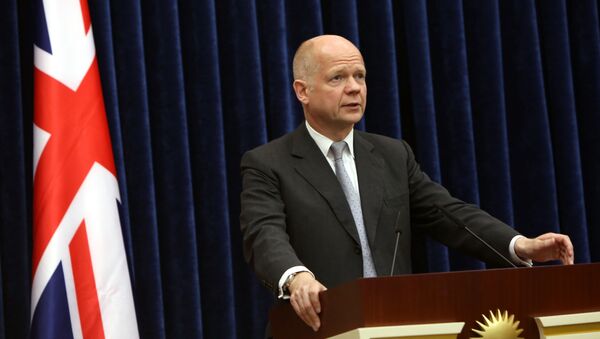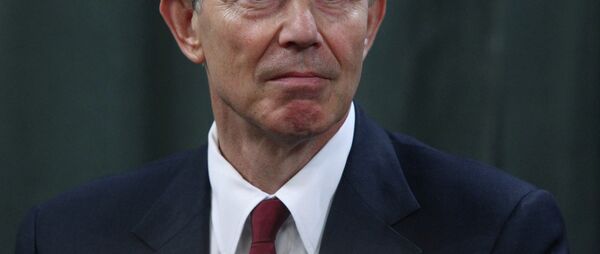"Those who oppose all use of force overseas will end up cowering in their bunker while the world's tyrants and murderers take advantage of their weakness."
That's the warning from Mr Hague, as he calls for the UK to increase its military involvement in the Syrian crisis.
"A state without the means of some change is without the means of its own conservation.”- Edmund Burke. @Telegraph https://t.co/kkDXWxJ6Or
— William Hague (@WilliamJHague) November 11, 2015
But the admission that the UK's intervention in Iraq was a mistake, is a surprising one coming from a leading politician who not only voted for the Iraq War, but who previously strongly defended it.
In 2014, Mr Hague insisted that Britain was "right" to invade Iraq in 2003, despite the maelstrom of destabilization that was unleashed when Saddam Hussein was toppled.
However, now it appears Mr Hague has had a change of heart. And it's comes at a significant moment.
Prime Minister David Cameron is expected to unveil on Thursday his strategy for further intervention in Syria. He has already indicated that it will include proposals for UK RAF planes to join the French-US bombing campaign.
However, Mr Cameron tried to convince British MPs to vote to bomb Syria back in 2013 — he failed.
In the aftermath of the November 13 Paris attacks, he's going to try again. Mr Hague say the PM is right to do so.
He uses the 1994 Rwandan genocide as a cautionary tale to those who are uneasy about further involvement in Syria.
"Eight hundred thousand or more killed in a few weeks in 1994 while the world did nothing to help them."
"The Genocide Memorial [in Kigali, Rwanda] is a monument to inaction and non-intervention. It should be visited by every pacifist, every 'stop the war' fanatic, every Leader of the Opposition who struggles with the concept of using the military at all, for it teaches us that there are circumstances where standing aside is incompatible with basic humanity, morality and mercy."
Strong words, but will they be enough to convince British MPs that this time will be different form Iraq?
There is still no unified UN consensus on how to deal with the Syrian civil war, like Iraq.
Similarly, many experts say that the threat of a power vacuum developing in Syria if the government is overturned could have even more disastrous consequences.
This was one of the most damning effects of the US-UK invasion of Iraq. The fall of Saddam Hussein left the country vulnerable to the powerful ambitions of radical groups among the Shia and Sunnis.
With so many factions, both domestic and external, fighting for the right to control the future of Syria, there is the risk that western intervention in the country might initiate a similarly bleak outcome.
However, after the Paris Attacks, there are fears that world leaders will be under pressure to rush through responses to the Syrian conflict, a crisis that has so far confounded international attempts to find a solution.




